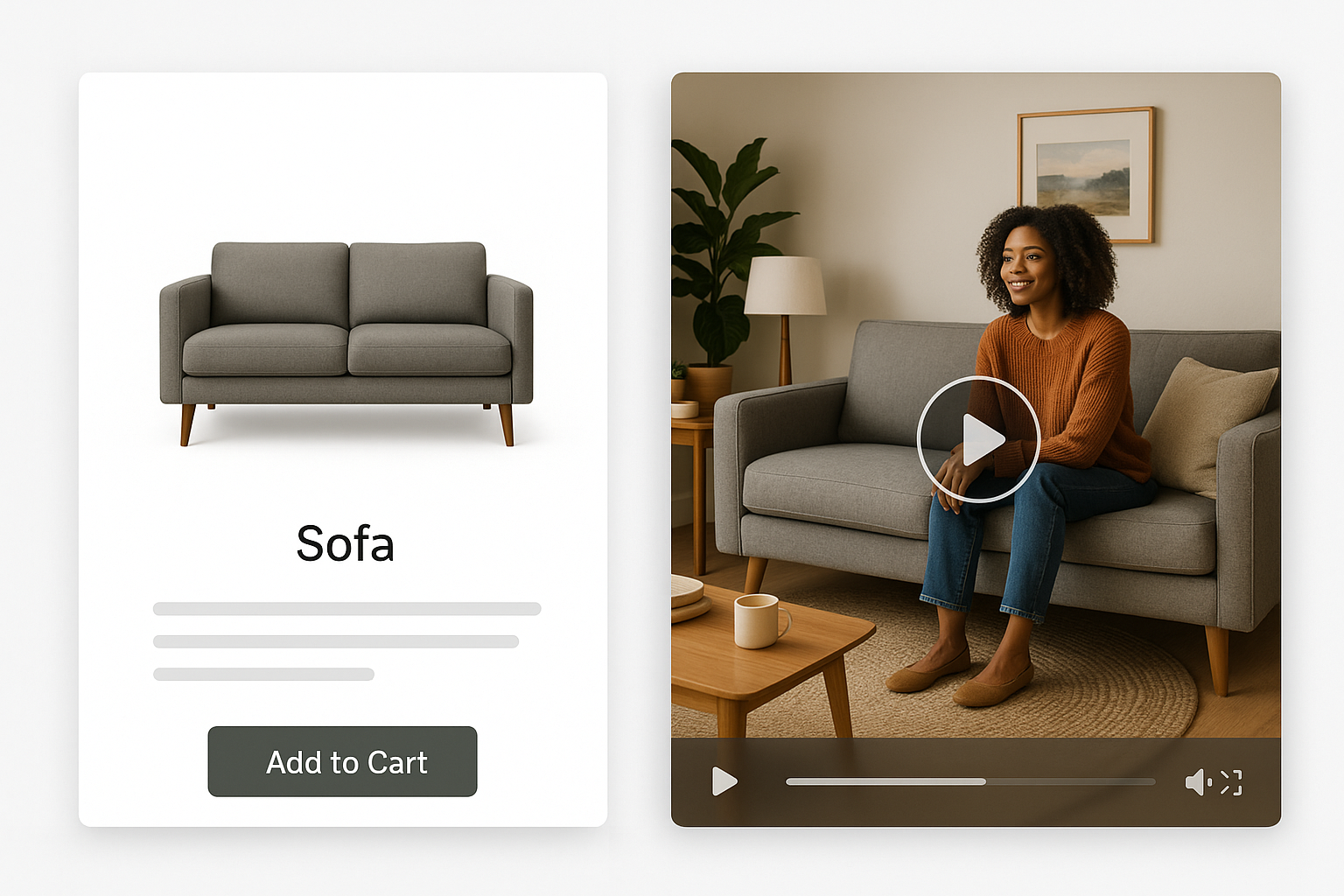Last year, I visited a small online furniture store. Their homepage didn’t lead with discounted sofas it opened with a video tour of a customer’s living room transformation. The owner narrated the story of how the piece became a family heirloom. I clicked “Add to Cart” before I even saw the price.
That’s when I realized what “e-commerce goes big on content” really means: content isn’t just packaging. It is the product.
Here’s the thing: E-commerce is shifting. Brands that lean into content storytelling, video, interactivity, data are pulling ahead. This post shows how and why.
Why content is now central to e-commerce
Content isn’t just marketing it’s commerce
- What this really means: Your product page, your blog, your social media they’re all part of the buying experience. Content pulls customers into the funnel and holds their attention.
- Misconception: Content belongs only in awareness stages. In reality, content drives conversions, lowers returns, builds loyalty.
- Tip: Make content and product teams work in sync. Build product launches around storytelling not just specs.
AI, personalization, and real-time relevance
- In 2025, top brands use AI to personalize content (banners, blogs, product descriptions, videos) in real time.
- Common mistake: One-size-fits-all content leads to disengagement.
- Framework: The 4R’s of Personalization:
- Reveal (user’s context)
- Recommend (matched content)
- Reframe (dynamic messaging)
- Reward (show relevance through value)
2. The content formats winning in 2025
Short-form video is dominating
- On platforms like TikTok and Instagram Reels, short videos out-perform polished ads.
- Mistake: Waiting for perfect production. Audiences prefer authenticity and speed.
- Tip: Repurpose existing long-form videos into clips for social; add captions, quick cuts, a clear hook in first 3 seconds.
User-Generated Content (UGC) builds trust
- Reviews, unboxings, real customer stories resonate more than branded posts.
- Error: Brands over-curate. Let real stories show.
- Checklist for UGC strategy:
- Set clear prompts (e.g., “show us your morning routine”)
- Make submissions easy (hashtags, tags, simple forms)
- Highlight UGC prominently (social proof)
- Reward contributors (discounts, shoutouts)
Interactive tools engagement that converts
- Tools like quizzes, calculators, “choose your fit” guides boost conversions.
- Tip: Build mini, helpful tools that walk customers through product need e.g., “Which desk fits your work style?”
3. How to shift your e-commerce strategy toward content
Content-Commerce Roadmap
What you should be doing not just what you can do.
Step-by-step checklist:
- Audit your content across channels.
- Identify gaps in storytelling, formats, personalization.
- Build a content plan that maps to funnel stages: awareness (stories, blog), consideration (videos, tools), conversion (personalized pages, UGC), retention (community, quizzes).
- Add AI or data triggers: for returning visitors, change homepage headline; for different demographics, use different visuals.
- Set metrics: time-on-page, engagement rates, UGC submission rate, conversion lift. A/B test formats.
4. Common myths and why they hold you back
- Myth: “Content is costly, ROI is slow.”
Reality: Repurposing smart, user-triggered content can scale with high ROI. AI and UGC cut cost, increase relatability. - Myth: “Shoppers just want product specs.”
Reality: People buy stories how the product solves their life, matches values, shows up visually. - Myth: “We can’t personalize at scale.”
Reality: Automation (AI, CMS flexibility) now makes mass personalization feasible.
Conclusion & CTA
E-commerce is going big on content not as a side task, but as the engine that drives growth. Brands that build their strategy around value, storytelling, AI personalization, and customer creativity don’t just earn clicks; they earn loyalty.
If you want a content strategy template or help mapping content to your buyer journey, subscribe below or download our free Content-Commerce Toolkit. Let’s make your brand one people remember, not just shop.



